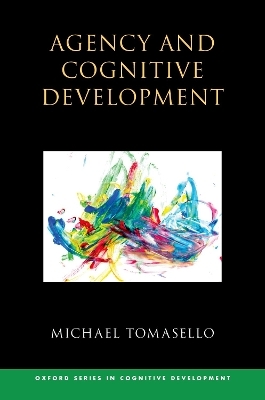
Agency and Cognitive Development
Oxford University Press (Verlag)
978-0-19-889657-9 (ISBN)
Children of different ages live in different worlds. This is partly due to learning: as children learn more and more about the world they experience it in different ways. But learning cannot be the whole story or else children could learn anything at any age - which they cannot.
In a startlingly original proposal, Michael Tomasello argues that children of different ages live and learn in different worlds because their capacities to cognitively represent and operate on their experience change in significant ways over the first years of life. These capacities change because they are elements in a maturing cognitive architecture evolved for agentive decision making and action, including in shared agencies in which individuals must mentally coordinate with others. The developmental proposal is that from birth infants are goal-directed agents who cognitively represent and learn about actualities; at 9 -12 months toddlers become intentional (and joint) agents who also imaginatively and perspectivally represent and learn about possibilities; and at 3-4 years preschool youngsters become metacognitive (and collective) agents who also metacognitively represent and learn about objective/normative necessities. These developing agentive architectures - originally evolved in humans' evolutionary ancestors for particular types of decision making and action - help to explain why children learn what they do when they do.
This novel agency-based model of cognitive development recognizes the important role of (Bayesian) learning, but at the same time places it in the context of the overall agentive organization of children at particular developmental periods.
Michael Tomasello is Professor of Psychology and Neuroscience at Duke University, and emeritus director at the Max Planck Institute for Evolutionary Anthropology in Leipzig. His research focuses on processes of cooperation, communication, and cultural learning in human children and other great apes. His many publications include Primate Cognition (OUP, 1997), Why We Cooperate (MIT Press, 2009), Becoming Human: A Theory of Ontogeny (Harvard University Press, 2019), and The Evolution of Agency (MIT Press, 2022).
1: Not By Learning Alone
2: Agency and Cognition
I. Early Infancy
3: Goal-Directed Agency and Iconic Representations
II. Toddlerhood
4: Intentional Agency and Imaginative Representations
5: Joint Agency and Perspectival Representations
III. Early Childhood
6: Metacognitive Agency and Multi-Perspectival Representations
7: Collective Agency and Objective/Normative Representations
IV. Moving Forward
8: An Agency-Based Model of Human Cognitive Development
9: he Child as Scientist Revisited
References
Index
| Erscheinungsdatum | 26.08.2024 |
|---|---|
| Reihe/Serie | Oxford Series in Cognitive Development |
| Verlagsort | Oxford |
| Sprache | englisch |
| Maße | 162 x 242 mm |
| Gewicht | 450 g |
| Themenwelt | Geisteswissenschaften ► Psychologie ► Allgemeine Psychologie |
| Geisteswissenschaften ► Psychologie ► Entwicklungspsychologie | |
| Geisteswissenschaften ► Psychologie ► Verhaltenstherapie | |
| Naturwissenschaften ► Biologie ► Humanbiologie | |
| Sozialwissenschaften ► Ethnologie | |
| Sozialwissenschaften ► Soziologie | |
| ISBN-10 | 0-19-889657-3 / 0198896573 |
| ISBN-13 | 978-0-19-889657-9 / 9780198896579 |
| Zustand | Neuware |
| Informationen gemäß Produktsicherheitsverordnung (GPSR) | |
| Haben Sie eine Frage zum Produkt? |
aus dem Bereich


